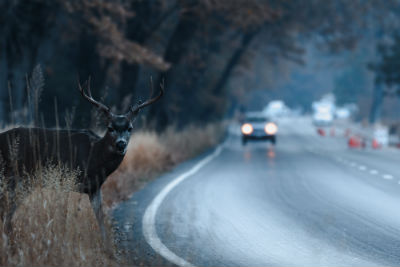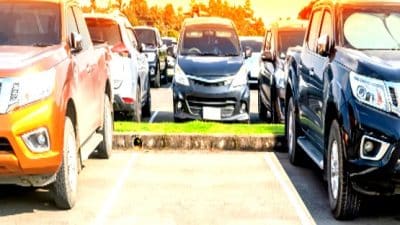
November is the peak month for insurance claims related to vehicle collisions with deer. Virginia is among the states with the highest risk of these types of incidents.
Mating season and migration contribute to a dramatic uptick in vehicle-deer collisions during the fall. To help avoid incidents, the State Corporation Commission Bureau of Insurance reminds drivers to stay alert, particularly if traveling along tree-lined roadways when it’s dark.
“A deer in the roadway poses a threat to even the most careful driver,” said Virginia Insurance Commissioner Scott White. “As fall arrives, contact your insurance agent or company to determine if your automobile policy provides coverage for claims involving a collision with deer or other wildlife.”
Damage caused to your vehicle as a result of a collision with a deer or other animal typically is covered under the optional “other-than-collision” (also known as “comprehensive”) portion of your automobile policy. In addition to claims involving animals, some of the coverages provided by “other-than-collision” are damage resulting from theft, wind, hail and flood, as well as fire and vandalism. Keep in mind that if you have a liability-only policy, your policy may not cover your vehicle for damage resulting from a crash involving a deer or any other object.
Drivers can help prevent a collision with a deer by lowering their speed and staying alert. Nevertheless, some collisions are inevitable. In these cases, you should stay in your lane and brake as carefully as possible. Though jarring, a collision with a deer is often safer for the driver and any occupants – and for surrounding vehicles and their occupants – than swerving sharply and potentially hitting something else. If a driver attempts to avoid a collision by swerving – into a tree or ditch, for example – any damage may trigger coverages different than “other-than-collision.” Additionally, insurers may consider the driver to be at fault, which could cause premiums to increase.
Should you collide with a deer, notify law enforcement and your insurance company as soon as possible. When safe to do so, take pictures of the incident scene and any vehicle damage in the event you file an insurance claim. Don’t assume that your vehicle is safe to drive. Check for leaking fluid, tire damage, broken lights and other damage. When in doubt, call a tow truck.
The Bureau of Insurance stands ready to assist Virginians with their questions regarding auto and many other types of insurance.
For more information, call the Bureau toll-free at 1-877-310-6560 or in Richmond at 804-371-9741 or visit its website at scc.virginia.gov/pages/Insurance.










